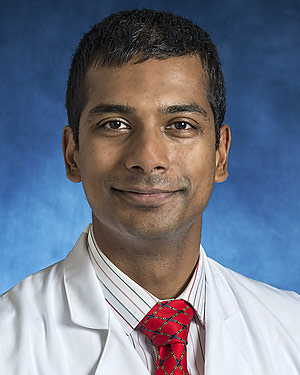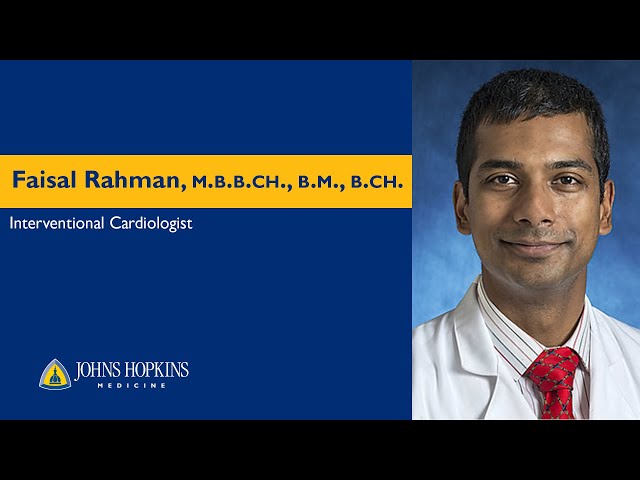Background
Faisal Rahman, BMBCh, FACC, FSCAI, is an interventional structural cardiologist at Johns Hopkins. He is an assistant professor with the Johns Hopkins School of Medicine, and serves as the Co-Medical Director of the Catheterization Laboratory at Frederick Health Hospital.
Dr. Rahman has specific interest and expertise in the management of coronary artery disease, including complex coronary interventions, as well as ultra-low contrast percutaneous coronary intervention for patients with kidney disease. He also specializes in the management of structural heart disease, including valvular disease with transcatheter aortic valve implantation (TAVI/TAVR), transcatheter edge-to-edge repair (TEER including MitraClip), transcatheter mitral valve replacement; select adult congenital defects such as patent foramen ovale (PFO), atrial septal defect (ASD), ventricular septal defect (VSD); and hypertrophic cardiomyopathy using alcohol septal ablation. He is also an expert in critically ill patients including cardiogenic shock and established the Johns Hopkins Medicine Cardiogenic Shock Team.
After receiving his medical degree from the University of Oxford, Dr. Rahman completed a residency in internal medicine at Boston University Medical Center where he held the title of Chief Medical Resident. He then completed fellowships in cardiovascular disease, interventional cardiology and structural cardiology at Johns Hopkins University in Baltimore, MD.
Dr. Rahman has contributed to numerous research publications, article reviews, book chapters and editorials. He has also served on multiple national committees as well as major professional medical societies. He has a strong interest in quality improvement, healthcare efficiency, and system development focusing on patient outcomes and providing quality care.



Patient Ratings & Comments
The Patient Rating score is an average of all responses to physician related questions on the national CG-CAHPS Medical Practice patient experience survey through Press Ganey. Responses are measured on a scale of 1 to 5, with 5 being the best score. Comments are also gathered from our CG-CAHPS Medical Practice Survey through Press Ganey and displayed in their entirety. Patients are de-identified for confidentiality and patient privacy.